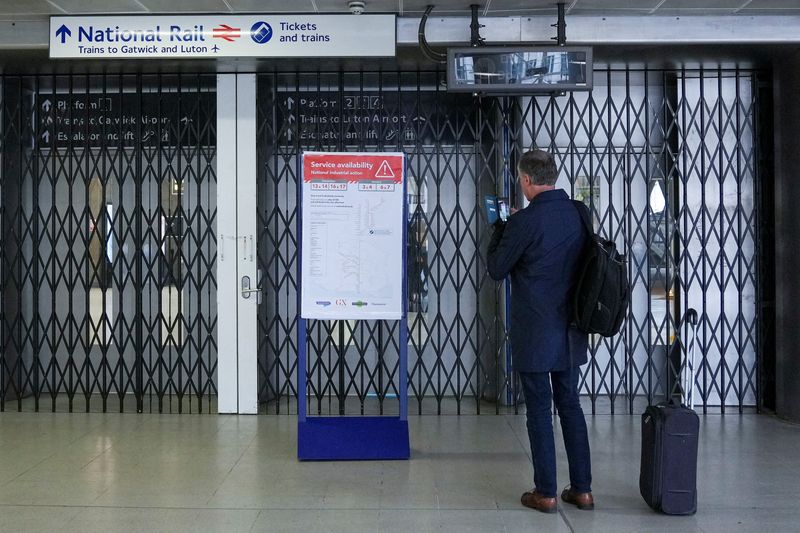UK public sector wages fall to 19-year low-report
2022.12.13 10:38
[ad_1]

UK public sector wages fall to 19-year low-report
Budrigannews.com – According to official data released on Tuesday, the reason why so many British public sector workers are going on strike is that, after accounting for inflation, average pay fell to a 19-year low in October.
In recent months, workers in both the public and private sectors have walked out. Teachers, postal workers, criminal defense attorneys, and rail workers have all complained that their pay has not kept up with inflation, which reached a 41-year high in October of 11.1%.
While some smaller disputes, mostly in the private sector, have been settled, the government has yet to change its position on pay in the public sector. Instead, it wants to tighten laws to make it harder for workers in important industries to go on strike.
At first glance, pay in the public sector is increasing, reaching an average of £754 per week before taxes in October.
However, when adjusted for consumer price inflation, this is only 6% lower in real terms than October 2021 and is no higher than the 364 pounds per week that the average public sector worker earned in October 2003.
In real terms, the private sector’s average weekly pay was 628 pounds in October, 4 percent lower than a year earlier. Workers in the private sector typically have lower formal qualifications and also have less generous pension plans.
More Annual CPI in US grew at slowest pace-report
Is it any wonder that the public sector is experiencing labor unrest? Following the release of the wages data on Tuesday, former rate-setter Andrew Sentance, who is now a senior adviser at Cambridge Econometrics, offered his thoughts via social media.
The government asserts that the requested pay raises cannot be financed and that raising wages to match inflation would only exacerbate the issue.
Bank of Britain Lead representative Andrew Bailey repeated on Tuesday his view that organizations would be “reasonable” to target pay ascends on those at the base finish of pay scales.
According to the ONS, strikes cost 417,000 working days in October, the most since just under a million days were lost in November 2011 when public sector workers went on strike over pension reforms.
In excess of 40,000 railroad laborers started their most recent round of walkouts on Tuesday in a long-running disagreement regarding pay and conditions, making far reaching disturbance England’s vehicle organization.
In December, there are likely to be strikes almost every day. On Thursday, nurses will go on strike for the first time in their union’s history.
($1 = 0.8051 pounds)







